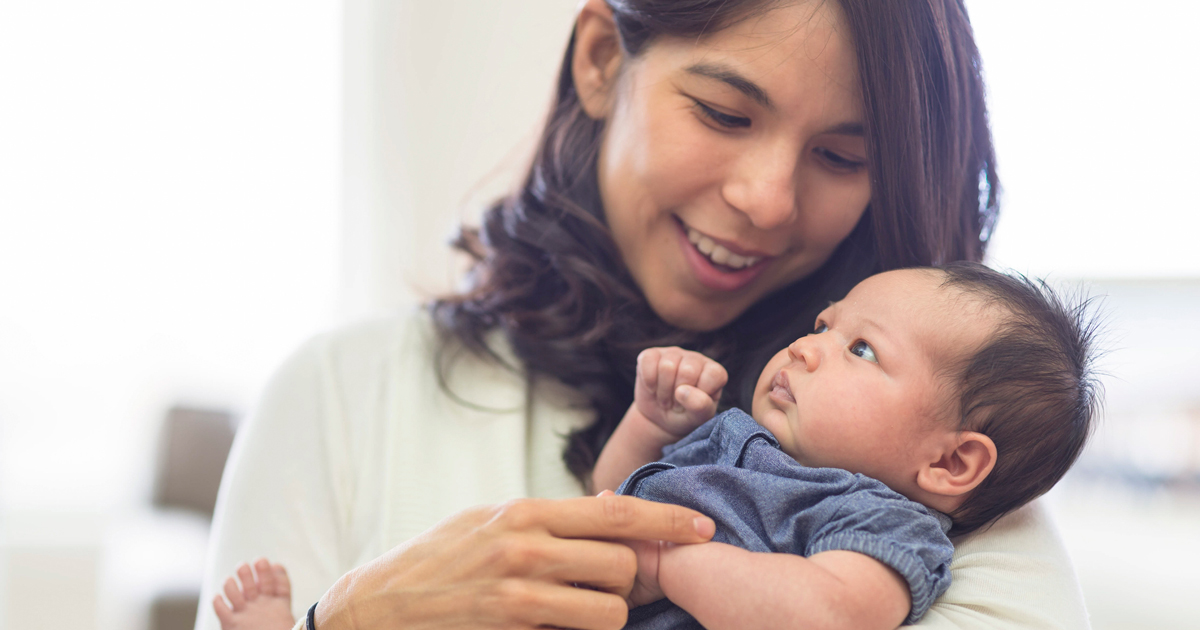Postnatal vitamins and postpartum nutrition: 6 tips for breastfeeding moms

We all know that eating right is a good thing. During the postpartum period, your body needs time and energy to heal. Nutrition helps the healing process. And, if you've chosen to breastfeed, your diet affects your baby, too.
OB-GYN nurse practitioner Jessica Gering, APRN-NP, says breastfeeding is rewarding but sometimes challenging part of the postpartum period. "Breastfeeding alone requires 300 to 400 extra calories per day," explains Gering. "That's more calories than what women require during pregnancy."
A healthy postpartum diet includes lean proteins, whole grains, low mercury fish and lots of fruits, veggies and water. Find out why these vitamins and nutrients can help you and your baby feel your best.
1. Your prenatal vitamin is a postnatal vitamin, too
"After delivery, continue to take your prenatal vitamin, which contains the extra vitamins you need," says Gering.
How long can you keep taking the prenatal vitamins? "I'd say to continue taking your prenatal vitamin at least while you're breastfeeding," advises Gering. "It certainly doesn't hurt to continue taking it. If you'd like to get pregnant again, a prenatal vitamin is essentially a good multivitamin for women of reproductive age."
2. Make calcium part of your day
"In the U.S., most women don't get enough calcium," says Gering. "Calcium is important for your baby's bone development during pregnancy and after delivery."
For postpartum women, the American College of Obstetrics and Gynecology (ACOG) recommends 1,000 to 1,300 mg of calcium daily. Look for calcium citrate, rather than calcium carbonate, in the vitamin's ingredients, Gering says. "Calcium citrate is more easily absorbed than calcium carbonate."
3. Take a daily iron supplement
Anemia during pregnancy is common. Blood loss during delivery further depletes hemoglobin levels which can exacerbate already existent anemia. Often times, anemia is a product of low iron levels. Take supplemental iron for six to eight weeks after delivery, to build up your iron stores again. Look for at least 27 mg of iron each day.
Hemoglobin helps your red blood cells deliver oxygen all over your body. An important part of the hemoglobin molecule is iron. Without high iron stores or consuming enough iron, you could develop iron deficiency anemia. If anemia is diagnosed, your doctor or midwife may prescribe extra iron for you to take daily. In severe cases, iron can be given intravenously. It takes several weeks, sometimes months to increase iron stores in your body, so taking iron routinely as prescribed is important.
Most gummy and chewable vitamins do not contain iron (as a safety precaution). If taking a gummy or chewable prenatal, you will also need an iron supplement.
Call 800.922.0000 or schedule online for an appointment at the Olson Center for Women's Health.
4. Get enough fatty acids from seafood
"DHA is an essential fatty acid, meaning we can't make it ourselves," says Gering. "Research shows that infants have enhanced motor, cognitive and visual development if their mom consumes DHA. It's found in most prenatal vitamins."
ACOG recommends women eat at least two servings of fish or shellfish each week while breastfeeding. Fish and shellfish contain omega-3 fatty acids, which are important for brain development before and after food.
Seafood sources of omega-3 fatty acids:
- Anchovies and sardines (herrings)
- Catfish
- Clams, mussels, scallops and oysters (mollusks)
- Crab, shrimp and lobster (crustaceans)
- Salmon
- Trout
There's one caveat though. Gering says to avoid fish with lots of mercury, which can harm developing infants. High mercury fish are typically big fishes, like bigeye tuna, king mackerel, marlin, shark, swordfish and tilefish.
5. Water up
Drink a lot of water to speed recovery and produce enough milk. "If you're dehydrated, your milk supply may decrease," says Gering. Breast milk is about 90% water.
Aim for 16 cups or 128 ounces of water each day. If that sounds like a lot of water, it is. One tip is to keep a water bottle with you throughout the day. Another is to drink a glass of water before and after each feeding.
Dark yellow urine usually signals dehydration, which means you should increase your water intake.
6. Can certain vitamins prevent hair loss?
Hair loss after delivery is common. "Research in vitamins that can prevent hair loss after delivery is lacking," says Gering. "While products might claim to support hair growth, there's no randomized controlled trial to support their use. A prenatal vitamin is your best bet. Products for hair loss are unlikely to be harmful but can be very expensive."
For women concerned about hair loss, Gering suggests being more gentle with their hair. "Avoid heat and styling and things that would thin out your hair or cause breakage whether you were pregnant or not. For example, try to use silk hair ties instead of rubber bands."





